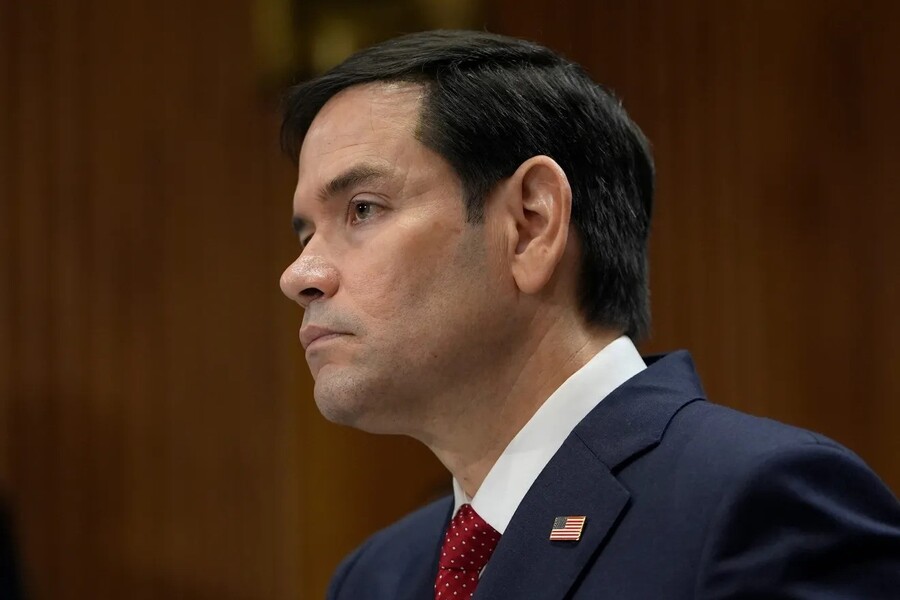In a move that underscores the Trump administration’s intensifying stance on immigration enforcement, Secretary of State Marco Rubio has unveiled a sweeping new policy aimed at non-U.S. citizens: break any law, lose your visa.
Dubbed “Catch and Revoke,” the policy introduces a one-strike rule for foreign nationals legally residing or visiting the United States. If they are found in violation of U.S. law—even for minor infractions—they could face immediate revocation of their visa and potential removal from the country.
“There is now a one-strike policy: Catch-And-Revoke,” Rubio announced in a May 2 post on X (formerly Twitter). “Whenever the government catches non-U.S. citizens breaking our laws, we will take action to revoke their status.”
Broad but Vague Implementation Scope
Originally outlined in an April 30 policy newsletter authored by Rubio, the directive signals a zero-tolerance policy toward foreign nationals, including tourists, students, skilled workers, investors, and family members of legal residents, regardless of the nature of the violation.
Although the statement cites offenses such as domestic violence and assault, it fails to clarify whether low-level infractions, such as traffic tickets or civil violations, would trigger enforcement. Immigration experts warn that the policy’s lack of specificity may leave it open to arbitrary application and potential legal challenges.
“They stripped student visas from people for speeding tickets,” said Aaron Reichlin-Melnick, senior fellow at the American Immigration Council. “Now they’re suggesting they’ll do the same to everyone.”
The Trump administration has already faced backlash for aggressively targeting international student visa holders, particularly those engaged in pro-Palestinian protests on U.S. college campuses. In several reported cases, student visas were revoked for minor infractions or mere participation in demonstrations.
While hundreds of students recently had their visas reinstated following court challenges, the new policy indicates that the administration is far from backing down.
Experts Say Policy May Violate Immigration Law
Critics from across the legal and academic spectrum argue that the “Catch and Revoke” initiative represents an overreach of executive power and is inconsistent with current U.S. immigration law.
“Wealthy, skilled people with other options will not settle in a country where their lives can be ruined for a speeding ticket or operating an illegal lemonade stand,” said David Bier, director of immigration studies at the libertarian Cato Institute.
Legal analysts suggest the policy may be vulnerable to constitutional and statutory challenges, particularly if visa revocations occur without due process or clear legal standards. Questions also remain as to how the State Department plans to coordinate enforcement with local law enforcement agencies and immigration courts.
A Privilege, Not a Right
Rubio defended the measure as a necessary assertion of American sovereignty, asserting that the U.S. visa system should be viewed as a privilege, not a right.
“The State Department under my leadership has now made clear that a visa is a privilege,” Rubio wrote. “Not a right.”
The policy aligns with former President Donald Trump’s broader immigration agenda, which has sought to sharply limit both legal and illegal immigration through restrictions, deportations, and visa overhauls.
What This Means for Visa Holders
The implications of the policy could be profound for the millions of people holding non-immigrant visas in the U.S. Those affected include:
- Tourists and visitors
- International students
- Business professionals and investors
- Temporary workers and au pairs
- Spouses and dependents of green card holders
Immigration attorneys are urging visa holders to exercise extreme caution and consult legal guidance when dealing with any law enforcement matter, no matter how minor, given the heightened risk of visa revocation without warning.
What’s Next?
Although the administration has reversed some decisions under legal pressure, such as reinstating student visas that were previously cancelled, the future enforcement of the “Catch and Revoke” policy remains uncertain. Legal scholars expect a wave of challenges to the measure, particularly as more cases come to light.
Meanwhile, immigration advocates and human rights organizations are mobilizing to monitor its impact and provide support to those caught in its reach.

